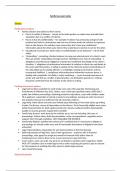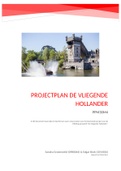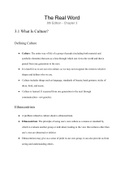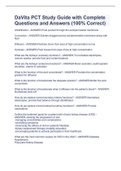Summary
Summary Family Law full notes units 1-9
- Module
- Family Law
- Institution
- University Of Law (ULaw)
This document provides everything you need to know covering units 1-9 of the Family Law course at the University of Law. Take these notes into the exam with you and use them for your revision. Summary based on the book: 'Family Law and Practice 2023' Nancy Duffield, Jacqueline Kempton, and Chri...
[Show more]












